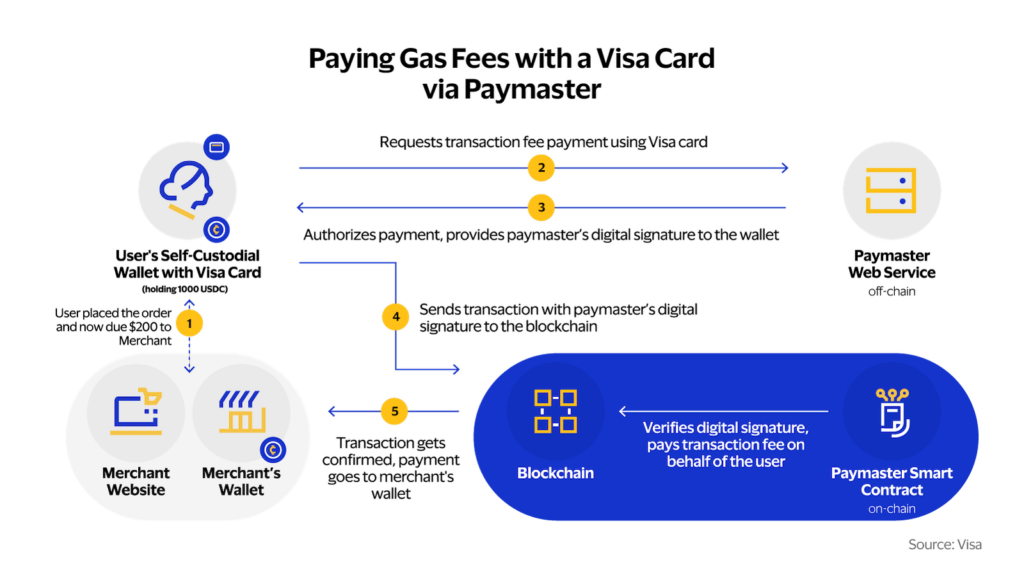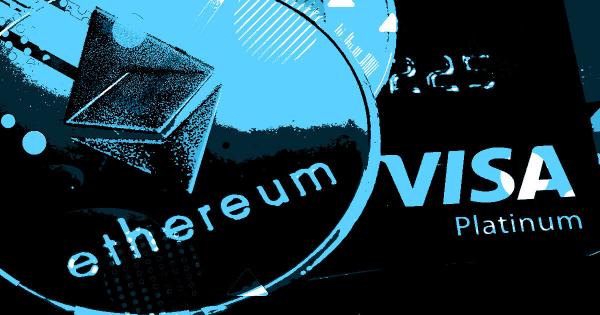Visa is taking significant strides toward simplifying blockchain transactions. In what could be a game-changer for users, the payment giant has been working on an experimental solution that allows for the payment of on-chain gas fees with a Visa card.
Mustafa Bedawala, a product manager at VISA, shared the publication while detailing a perceived problem with crypto wallets; the constant need to manage ETH balances for gas fees.
The typical process of using Ethereum requires users to purchase ETH either on an exchange or via an on-ramp service, followed by transferring ETH to their wallets to ensure sufficient coverage for fluctuating gas fees. This constant shifting of gas prices often results in users either overpaying or falling short of their ETH supply, adding a layer of complexity and friction.
Visa Card payments for gas fees
Visa’s proposed solution leverages Ethereum’s ERC-4337 account abstraction standard and a feature known as the “paymaster” smart contract, which facilitates off-chain gas fee payments. The process is envisaged to work as follows:
- A user initiates an Ethereum transaction through their wallet, which then sends the transaction details to the paymaster web service.
- The web service calculates the cost of the gas fee and subsequently charges the user’s Visa card using Visa’s Cybersource system to process the card payment.
- Following this, the web service sends back a digital signature to the wallet, approving the payment. This approval is valid for a specified time window.
- The wallet attaches this signature to the transaction and forwards it to Ethereum.
- The paymaster smart contract then verifies the validity of the signature and covers the gas cost to process the transaction.

This sequence of steps allows the user to directly pay gas fees with their Visa card off-chain, eliminating the need for users to hold ETH merely for paying fees. This strategy significantly simplifies the user experience, making transactions more convenient.
Visa has conducted tests of this concept on the Ethereum Goerli testnet, utilizing existing open-source tools such as Stackup’s userop.js library. The test transactions succeeded in covering fees via the paymaster without the need for ETH.
Notably, this concept has immense potential to reduce friction for blockchain users. The adoption of paymaster solutions by wallet providers or merchants could enable users to pay gas fees using Visa cards.
Bedawala also hinted at broader implications, noting that merchants or dApps could leverage the paymaster setup to enhance the customer experience, enabling gas fee payments with Visa cards. This solution could also pave the way for existing wallet and paymaster providers to offer methods of paying gas fees with Visa cards.
The post Visa introduces way to pay gas fees with your credit card appeared first on CryptoSlate.










